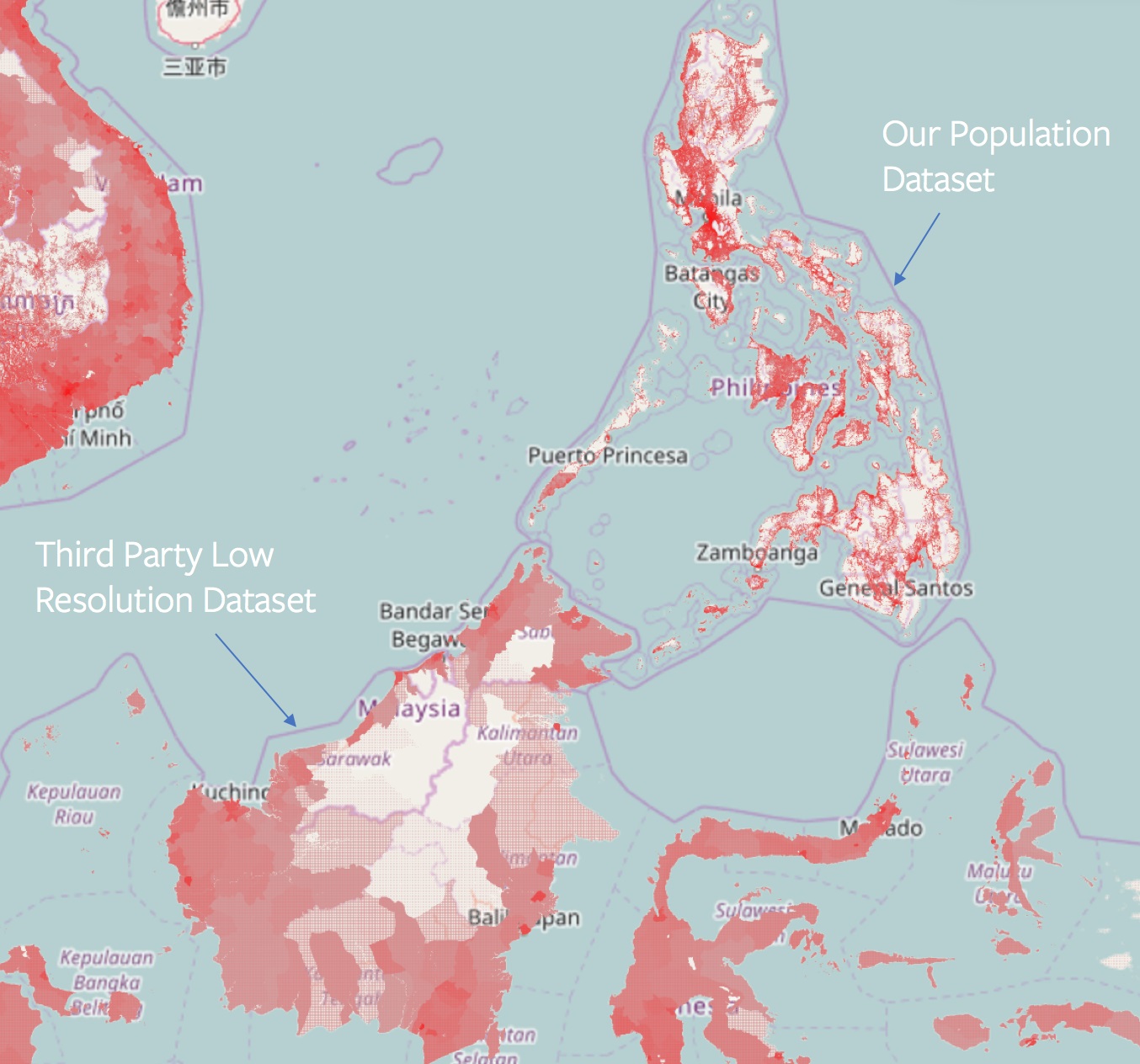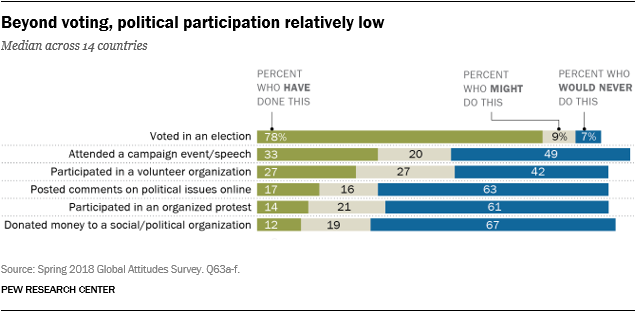By Alexandra Shaw, Andrew Zahuranec, Andrew Young, Stefaan Verhulst
The Living Library Index–inspired by the Harper’s Index–provides important statistics and highlights global trends in governance innovation. This installment focuses on public perceptions regarding secondary uses of personal data (or the re-use of data initially collected for a different purpose). It provides a summary of societal perspectives toward personal data usage, sharing, and control. It is not meant to be comprehensive–rather, it intends to illustrate conflicting, and often confusing, attitudes toward the re-use of personal data.
Please share any additional, illustrative statistics on data, or other issues at the nexus of technology and governance, with us at [email protected]
Data ownership and control
- Percentage of Americans who say it is “very important” they control information collected about them: 74% – 2016
- Americans who think that today’s privacy laws are not good enough at protecting people’s privacy online: 68% – 2016
- Americans who say they have “a lot” of control over how companies collect and use their information: 9% – 2015
- In a survey of 507 online shoppers, the number of respondents who indicated they don’t want brands tracking their location: 62% – 2015
- In a survey of 507 online shoppers, the amount who “prefer offers that are targeted to where they are and what they are doing:” 60% – 2015
- Number of surveyed American consumers willing to provide data to corporations under the following conditions:
- “Data about my social concerns to better connect me with non-profit organizations that advance those causes:” 19% – 2018
- “Data about my DNA to help me uncover any hereditary illnesses:” 21% – 2018
- “Data about my interests and hobbies to receive relevant information and offers from online sellers:” 32% – 2018
- “Data about my location to help me find the fastest route to my destination:” 40% – 2018
- “My email address to receive exclusive offers from my favorite brands:” 56% – 2018
Consumer Attitudes
- Academic study participants willing to donate personal data to research if it could lead to public good: 60% – 2014
- Academic study participants willing to share personal data for research purposes in the interest of public good: 25% – 2014
- Percentage who expect companies to “treat [them] like an individual, not as a member of some segment like ‘millennials’ or ‘suburban mothers:’” 74% – 2018
- Percentage who believe that brands should understand a “consumer’s individual situation (e.g. marital status, age, location, etc.)” when they’re being marketed to: 70% – 2018 Number who are “more annoyed” by companies now compared to 5 years ago: 40% – 2018Percentage worried their data is shared across companies without their permission: 88% – 2018Amount worried about a brand’s ability to track their behavior while on the brand’s website, app, or neither: 75% – 2018
- Consumers globally who expect brands to anticipate needs before they arise: 33% – 2018
- Surveyed residents of the United Kingdom who identify as:
- “Data pragmatists” willing to share personal data “under the right circumstances:” 58% – 2017
- “Fundamentalists,” who would not share personal data for better services: 24% – 2017
- Respondents who think data sharing is part of participating in the modern economy: 62% – 2018
- Respondents who believe that data sharing benefits enterprises more than consumers: 75% – 2018
- People who want more control over their data that enterprises collect: 84% – 2018
- Percentage “unconcerned” about personal data protection: 18% – 2018
- Percentage of Americans who think that government should do more to regulate large technology companies: 55% – 2018
- Registered American voters who trust broadband companies with personal data “a great deal” or “a fair amount”: 43% – 2017
- Americans who report experiencing a major data breach: 64% – 2017
- Number of Americans who believe that their personal data is less secure than it was 5 years ago: 49% – 2019
- Amount of surveyed American citizens who consider trust in a company an important factor for sharing data: 54% – 2018
Convenience
Microsoft’s 2015 Consumer Data Value Exchange Report attempts to understand consumer attitudes on the exchange of personal data across the global markets of Australia, Brazil, Canada, Colombia, Egypt, Germany, Kenya, Mexico, Nigeria, Spain, South Africa, United Kingdom and the United States. From their survey of 16,500 users, they find:
- The most popular incentives for sharing data are:
- Respondents who would prefer to see more ads to get new services: 34% – 2015
- Respondents willing to share search terms for a service that enabled fewer steps to get things done: 70% – 2015
- Respondents willing to share activity data for such an improvement: 82% – 2015
- Respondents willing to share their gender for “a service that inspires something new based on others like them:” 79% – 2015
A 2015 Pew Research Center survey presented Americans with several data-sharing scenarios related to convenience. Participants could respond: “acceptable,” “it depends,” or “not acceptable” to the following scenarios:
- Share health information to get access to personal health records and arrange appointments more easily:
- Share data for discounted auto insurance rates:
- Share data for free social media services:
- Share data on smart thermostats for cheaper energy bills:
Other Studies
- Surveyed banking and insurance customers who would exchange personal data for:
- Surveyed banking and insurance customers willing to share data specifically related to income, location and lifestyle habits to:
- In a survey of over 7,000 members of the public around the globe, respondents indicated:
- They thought “smartphone and tablet apps used for navigation, chat, and news that can access your contacts, photos, and browsing history” is “creepy;” 16% – 2016
- Emailing a friend about a trip to Paris and receiving advertisements for hotels, restaurants and excursions in Paris is “creepy:” 32% – 2016
- A free fitness-tracking device that monitors your well-being and sends a monthly report to you and your employer is “creepy:” 45% – 2016
- A telematics device that allows emergency services to track your vehicle is “creepy:” 78% – 2016
- The number of British residents who do not want to work with virtual agents of any kind: 48% – 2017
- Americans who disagree that “if companies give me a discount, it is a fair exchange for them to collect information about me without my knowing”: 91% – 2015
Data Brokers, Intermediaries, and Third Parties
- Americans who consider it acceptable for a grocery store to offer a free loyalty card in exchange for selling their shopping data to third parties: 47% – 2016
- Number of people who know that “searches, site visits and purchases” are reviewed without consent: 55% – 2015
- The number of people in 1991 who wanted companies to ask them for permission first before collecting their personal information and selling that data to intermediaries: 93% – 1991
- Number of Americans who “would be very concerned if the company at which their data were stored sold it to another party:” 90% – 2008
- Percentage of Americans who think it’s unacceptable for their grocery store to share their shopping data with third parties in exchange for a free loyalty card: 32% – 2016
- Percentage of Americans who think that government needs to do more to regulate advertisers: 64% – 2016
- Registered American voters who are “somewhat uncomfortable” or “very uncomfortable” with companies like Internet service providers or websites using personal data to recommend stories, articles, or videos: 56% – 2017
- Registered American voters who are “somewhat uncomfortable” or “very uncomfortable” with companies like Internet service providers or websites selling their personal information to third parties for advertising purposes: 64% – 2017
Personal Health Data
The Robert Wood Johnson Foundation’s 2014 Health Data Exploration Project Report analyzes attitudes about personal health data (PHD). PHD is self-tracking data related to health that is traceable through wearable devices and sensors. The three major stakeholder groups involved in using PHD for public good are users, companies that track the users’ data, and researchers.
- Overall Respondents:
- Percentage who believe anonymity is “very” or “extremely” important: 67% – 2014
- Percentage who “probably would” or “definitely would” share their personal data with researchers: 78% – 2014
- Percentage who believe that they own—or should own—all the data about them, even when it is indirectly collected: 54% – 2014
- Percentage who think they share or ought to share ownership with the company: 30% – 2014
- Percentage who think companies alone own or should own all the data about them: 4% – 2014
- Percentage for whom data ownership “is not something I care about”: 13% – 2014
- Percentage who indicated they wanted to own their data: 75% – 2014
- Percentage who would share data only if “privacy were assured:” 68% – 2014
- People who would supply data regardless of privacy or compensation: 27% – 2014
- Percentage of participants who mentioned privacy, anonymity, or confidentiality when asked under what conditions they would share their data: 63% – 2014
- Percentage who would be “more” or “much more” likely to share data for compensation: 56% – 2014
- Percentage who indicated compensation would make no difference: 38% – 2014
- Amount opposed to commercial or profit-making use of their data: 13% – 2014
- Percentage of people who would only share personal health data with a guarantee of:
- Surveyed Researchers:
- Percentage who agree or strongly agree that self-tracking data would help provide more insights in their research: 89% – 2014
- Percentage who say PHD could answer questions that other data sources could not: 95% – 2014
- Percentage who have used public datasets: 57% – 2014
- Percentage who have paid for data for research: 19% – 2014
- Percentage who have used self-tracking data before for research purposes: 46% – 2014
- Percentage who have worked with application, device, or social media companies: 23% – 2014
- Percentage who “somewhat disagree” or “strongly disagree” there are barriers that cannot be overcome to using self-tracking data in their research: 82% – 2014
SOURCES:
“2019 Accenture Global Financial Services Consumer Study: Discover the Patterns in Personality”, Accenture, 2019.
“Americans’ Views About Data Collection and Security”, Pew Research Center, 2015.
“Data Donation: Sharing Personal Data for Public Good?”, ResearchGate, 2014.
“Data privacy: What the consumer really thinks,” Acxiom, 2018.
“Exclusive: Public wants Big Tech regulated”, Axios, 2018.
“Consumer data value exchange,” Microsoft, 2015.
“Crossing the Line: Staying on the right side of consumer privacy,” KPMG International Cooperative, 2016.
“How do you feel about the government sharing our personal data? – livechat”, The Guardian, 2017.
“Personal data for public good: using health information in medical research”, The Academy of Medical Sciences, 2006.
“Personal Data for the Public Good: New Opportunities to Enrich Understanding of Individual and Population Health”, Robert Wood Johnson Foundation, Health Data Exploration Project, Calit2, UC Irvine and UC San Diego, 2014.
“Pew Internet and American Life Project: Cloud Computing Raises Privacy Concerns”, Pew Research Center, 2008.
“Poll: Little Trust That Tech Giants Will Keep Personal Data Private”, Morning Consult & Politico, 2017.
“Privacy and Information Sharing”, Pew Research Center, 2016.
“Privacy, Data and the Consumer: What US Thinks About Sharing Data”, MarTech Advisor, 2018.
“Public Opinion on Privacy”, Electronic Privacy Information Center, 2019.
“Selligent Marketing Cloud Study Finds Consumer Expectations and Marketer Challenges are Rising in Tandem”, Selligent Marketing Cloud, 2018.
“The Data-Sharing Disconnect: The Impact of Context, Consumer Trust, and Relevance in Retail Marketing,” Boxever, 2015.
“Microsoft Research reveals understanding gap in the brand-consumer data exchange,” Microsoft Research, 2015.
“Survey: 58% will share personal data under the right circumstances”, Marketing Land: Third Door Media, 2019.
“The state of privacy in post-Snowden America”, Pew Research Center, 2016.
The Tradeoff Fallacy: How Marketers Are Misrepresenting American Consumers And Opening Them Up to Exploitation”, University of Pennsylvania, 2015.


